
How To Craft a Compelling Backstory for Your Novel and Keep Track of It!
If you consider a story to be one large event that creates an irreversible change, then it must have a beginning to have an end. It must start from somewhere and be in a particular state to experience said change, and there must be a reason for that initial state of being.
That reason, my friend, is the backstory.
Crafting a compelling backstory is essential to creating realistic characters with motivations and complex problems the reader will relate to.

Why Never Giving Up on Your Writing Dreams Matters
Author Joshua Moehling, shares his journey from his early childhood dreams of being Stephen King, to facing reality and rejection from the publishing world, to eventually succeeding in accomplishing his dream of becoming a published author.

Peeling Back the Layers on Author, Narrator, and Character Voice to Write Better Fiction - The Micro Elements Part 4
Voice is one of the more ambiguous literary terms. When I started writing fiction, I had no clue what people meant when they referred to “voice.” Whose voice? The author’s, the characters’, or an unknown narrator?
It turns out we’re talking about all three, all at once, but here’s where it gets really confusing—everything stems from the author’s voice.
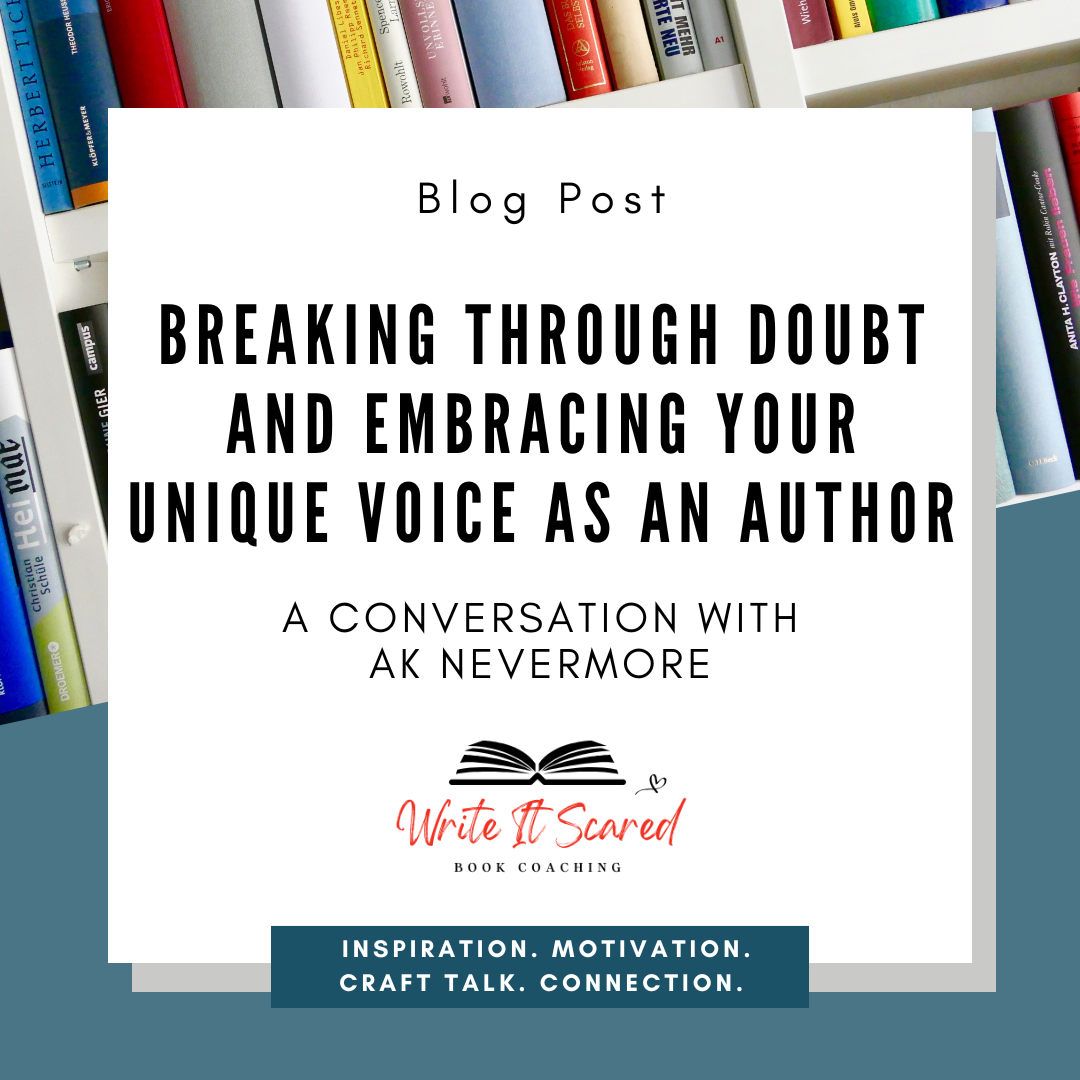
Breaking Through Doubt and Embracing Your Unique Voice as an Author
How do you come back from the dead?
Recover from being told who you are and what you write is wrong?
From bending yourself around like a pretzel trying to fit someone else's writing mold only to figure out that it’s pointless because it sucked the joy and life out of what you stand for?
If you write dark, spicy romance in the wheelhouses of sci-fi or fantasy, or if you struggle to express your voice in writing, you don’t want to miss this conversation.

Advice for Mystery, Thriller, and Suspense Writers & How to Craft a Credible Villain
We discuss the common challenges mystery, thriller and suspense writers face, including self-doubt, thinking the story is painfully boring and obvious, plus understanding genre expectations, and forming a compelling villain.
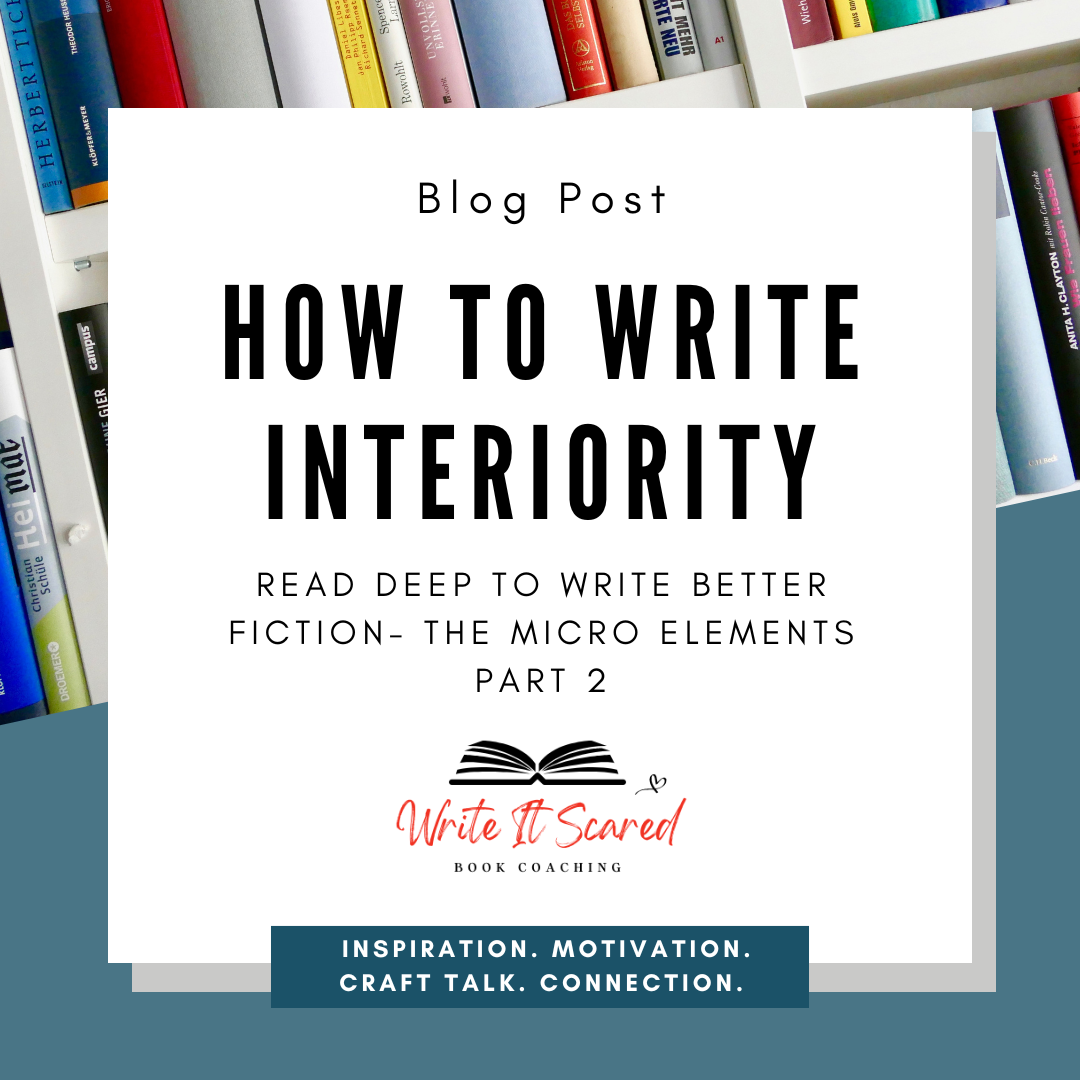
How to Write Interiority: Read Deep to Write Better Fiction-The Micro Elements Part 2
Interiority is looking directly inside the character's head and heart; from it, we understand their emotions, motivations, decision-making process, and psychological states, which can be very different from their actions on the page.

Announcing The Write It Scared Podcast - Why I’m Doing It Scared!
This podcast for fiction writers has been a dream of mine for a long time and I want to share with you the why behind it.
The Mission: Tell the truth about why writing a novel is so hard by acknowledging that most writers grapple with two stories: the one they want to put on the page to the best of their ability and the often subconscious internal story that prevents them from doing it.
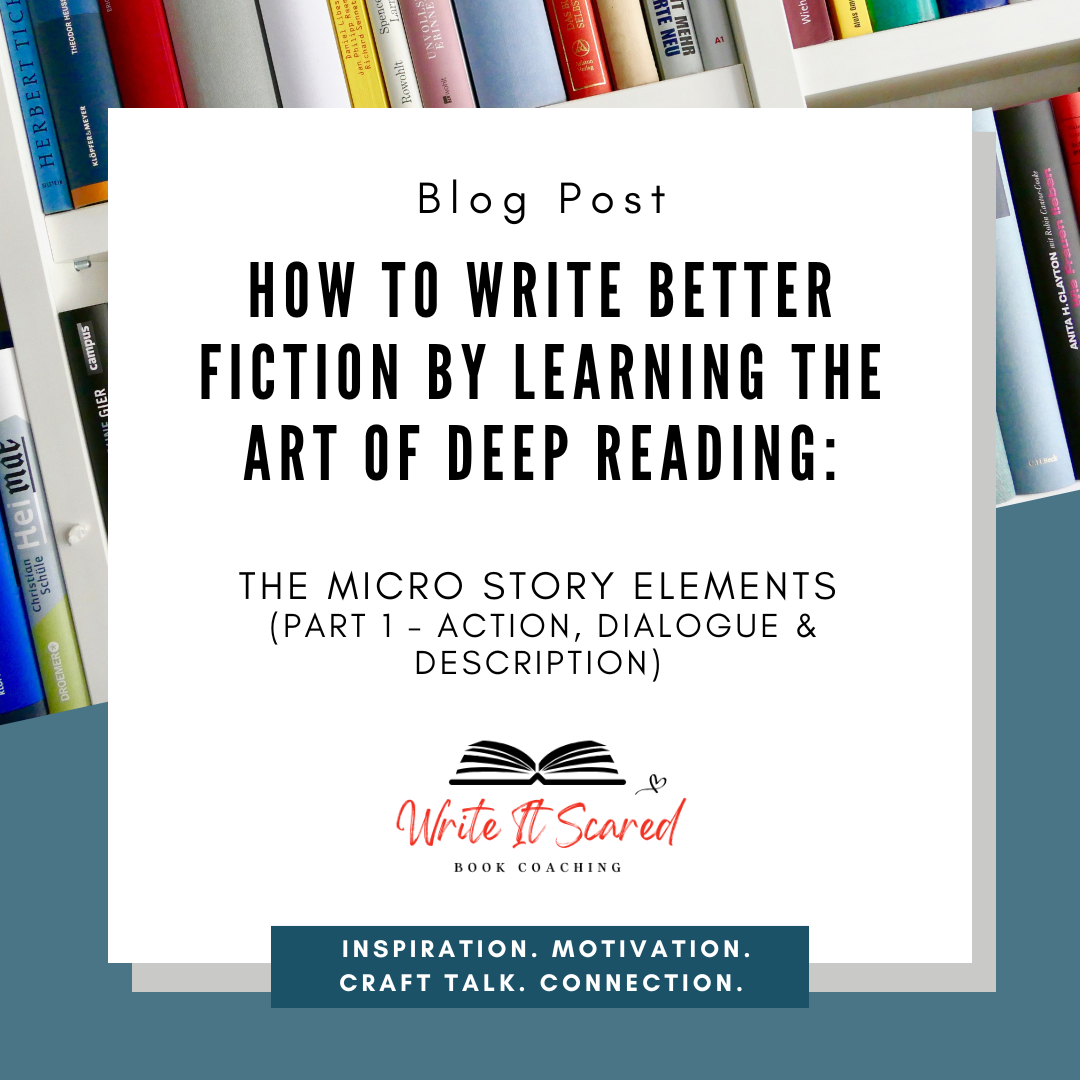
Write Better Fiction with Deep Reading: The Micro Elements of Story(Part 1)Action, Dialogue, & Description.
In our last deep reading article we focused on the macro elements of fiction writing: Character, Plot, Conflict, Theme, Setting, Tone and POV Choice. Now we will turn our attention to the glue that holds those pieces together with the same intention—figuring out how they work so that we can craft better stories.

How to Craft Credible Villains
Antagonists will create obstacles for your protagonist to overcome. Depending on your intention, they can also highlight specific aspects of your main character and make them more or less relatable. The villain wants to hurt the protagonist — usually in the worst way possible and on purpose!

How to Write Suspense and Tension in Your Novel to Keep Readers Hooked
Suspense vs. tension: Why you can’t have one without the other, and if you have neither, you don’t have a story.
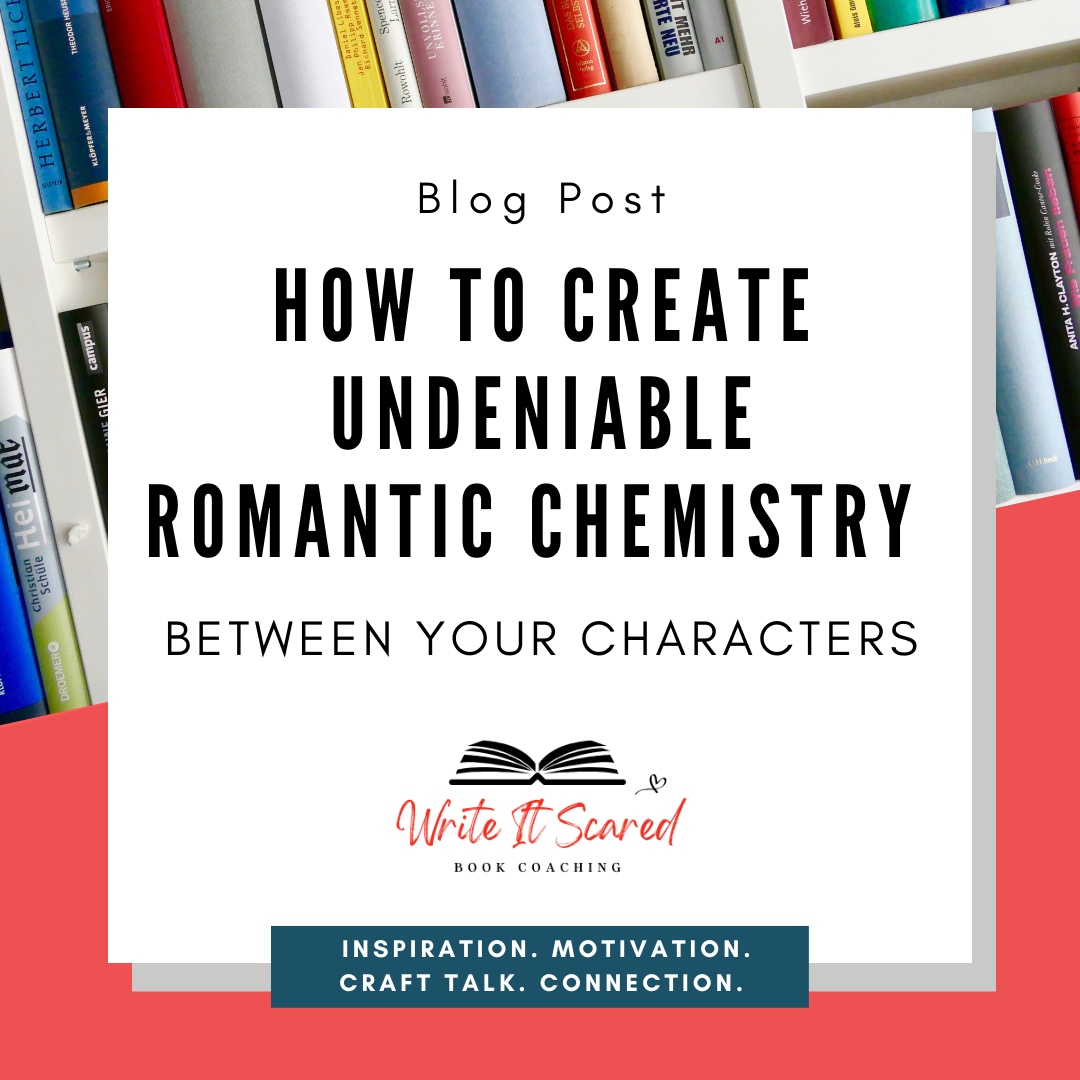
How to Create Undeniable Romantic Chemistry Between Your Characters
Romantic chemistry is that unspoken, elusive connection that you "know" when you see it, or rather when you feel it because it triggers a happy little soup of neurochemicals inside your body that scream more, more, more!

How to Structure a Romance Novel: Beyond the Beats
Today we’ll discuss how to outline a romance novel to hit the beats readers expect and talk about when and where those beats fall. But we’ll also look at character arcs, and themes because you really can’t talk about mapping a story without them!

Romance Writing Essentials: Tips for Writing Romance For Fiction Writers
Romance stories are among the most difficult to execute well. Why? There are many reasons, but the biggest is that structurally, the protagonist’s object of desire is also a major antagonistic force in the story. The love interest is the opposition! Wrangling that conundrum into a satisfying emotional experience takes some finesse, my friends.

Worldbuilding Tools - A Simplified Approach to Creative Worldbuilding for Fiction Writers
Worldbuilding is where writers create the social, cultural, historical, political, and physical realities for our characters.
It feels like a colossal endeavor that we could talk about for days, but we won’t. Today, we’re going to streamline the process by following our curiosity through a series of strategic questions.

Why Genre Awareness is Crucial for Effective Writing
The writing industry puts a lot of focus on the importance of a writer identifying their genre once the book has been written to determine where it will fit in the marketplace, but minimal emphasis on identifying genre before you begin to write it.
This is a problem because a book’s genre is much more than which shelf it sits on in a bookstore.
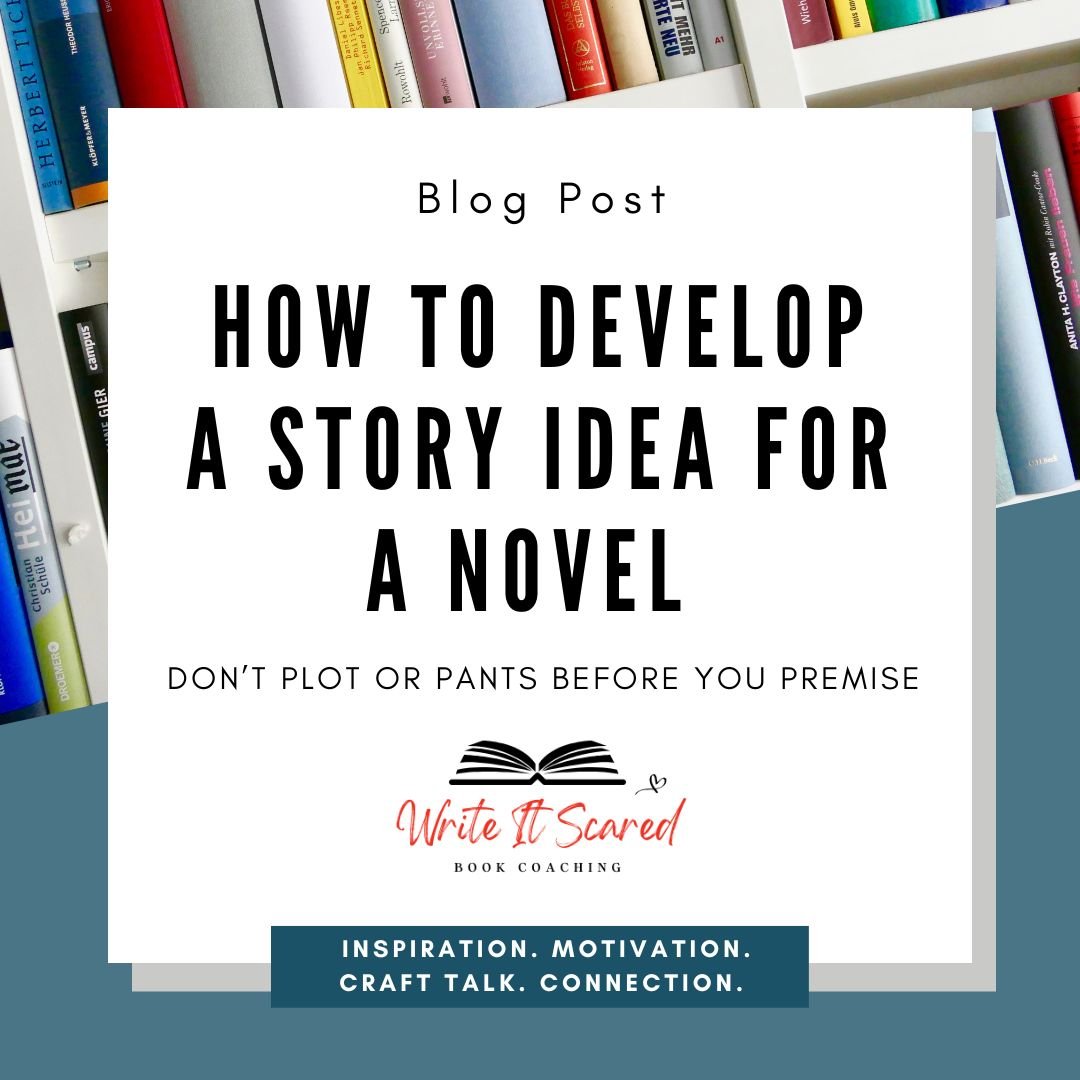
How to Develop a Story Idea For a Novel
Are you writing a novel this year? Maybe it’s your first time, and you’re wondering where to start. Or you’ve done this before, but you’re looking to nail down your process. Either way, this article will help.
Today, we’ll discuss how to explore a fresh idea and develop a firm foundation of the essential elements every story requires so that you can create a rock-solid premise statement for your novel.

Becoming a Better Literary Citizen: Unpacking Gandhi's Wisdom in the Book World
Do you ever feel like your actions don't really matter in the grand scheme of things?
In a world filled with chaos and noise, it's easy to wonder if anyone cares or will even notice our efforts. I'll admit, I've had those moments too (plenty). But life has a way of reminding me that my actions do matter, even if I can't always see the immediate impact.
As Gandhi wisely said, "Whatever you do will be insignificant, but it’s very important that you do it."
This article will show you how to take action to become a better literary citizen and why it’s so important that we do this together!

How to Write Authentic Dialogue
Dialogue is an essential part of writing narrative fiction, and it's one of those things we must master, or the story falls flat.
Nothing’s worse than reading a conversation between two characters that goes nowhere and serves no purpose, except maybe reading dialogue that spoon-feeds information the author wants us to know. It's like being forced to eat peas. (I hate peas.)

Crafting Powerful Scenes: A Guide to Writing Scenes That Work
A scene is a unit (think of it like a link) of expressed change, and many links make a story.
Crafting a compelling scene is vital for a writer because no matter how great the story is in concept, it will only hold together the big picture if it works on the scene level.
It doesn't matter how eloquent the writing is; if the scenes don't work, the story will still be a lifeless, shapeless thing that does not hold our interest.

Striking the Write Balance: A Deep Dive into Scene and Summary Techniques
All novels are built from a combination of scene and narrative summary. The balance is the author's choice, but the more we know each component, the better decisions we can make about structuring our story to produce a book others will enjoy.
In this blog post, we'll break down the distinction between scene and summary, see how they are often blended, and examine the rarely discussed middle ground: the half-scene.
